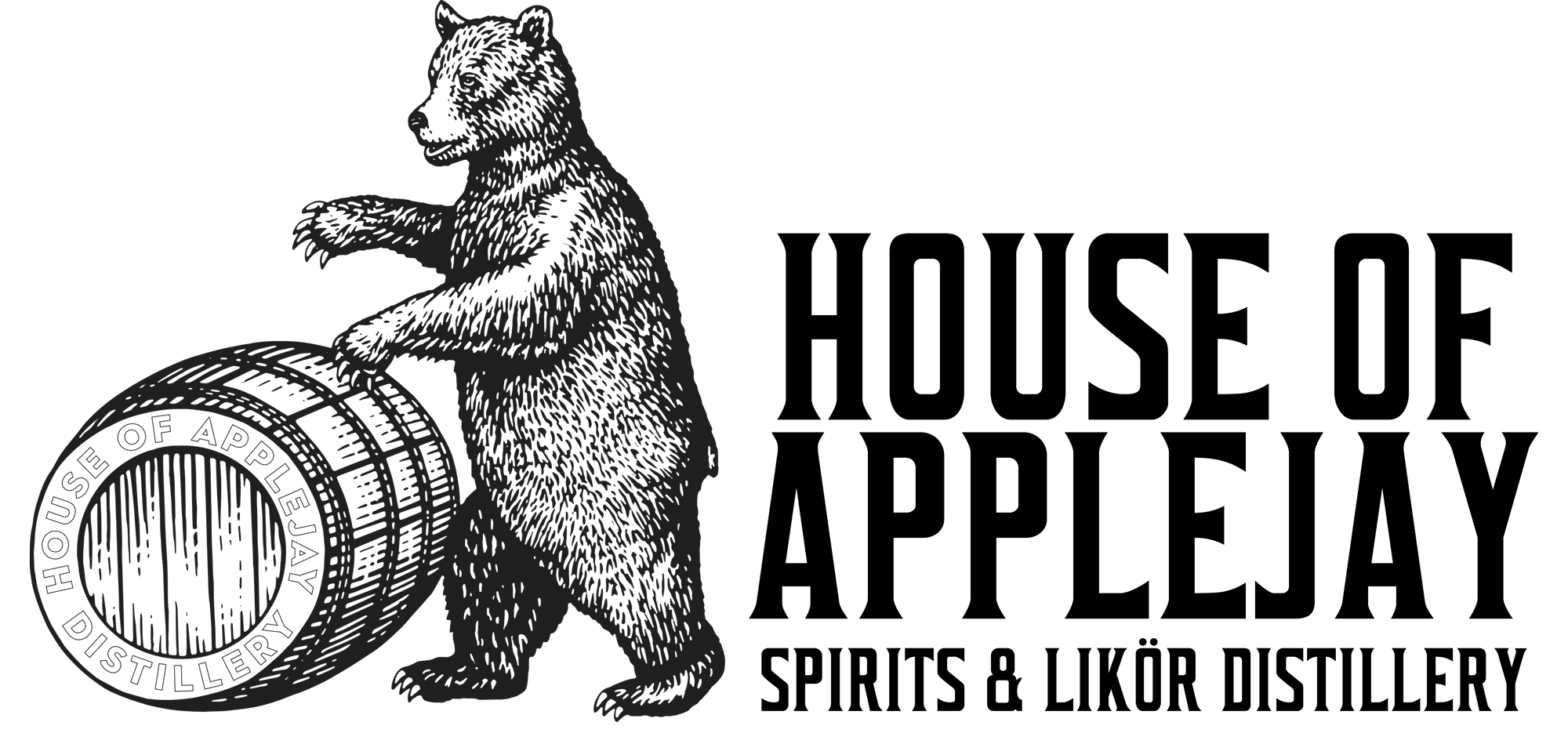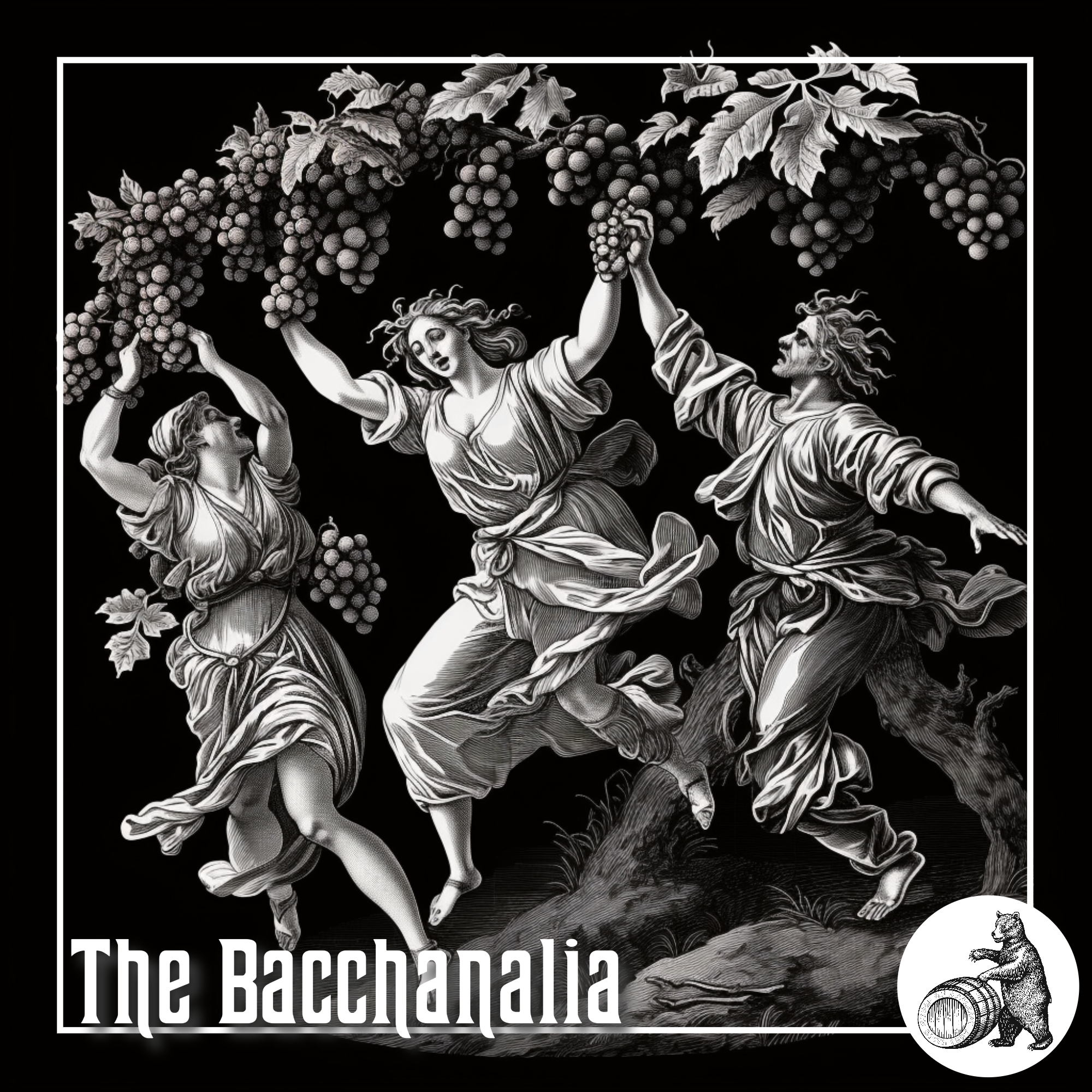Bacchanalia
An ancient Roman festival venerating the God of Wine
Bacchanalia, an ancient Roman festival venerating Bacchus, the god of wine and fertility, stands as a vibrant testament to the intertwining of revelry, culture, and mythology. The festival was inspired by the exuberant elements of the Greek Dionysia.
Originally, the Bacchanalia was an intimate affair exclusively for women, it evolved into a grand, public celebration, inviting men to partake in the festivities.
Roman Traditions & Culture
The Bacchanalia was a yearly Roman custom, devoted to Bacchus (known as Dionysus in Greek mythology), and featured lively feasting, libations, and uninhibited revelry. Bacchus closely aligns with the Greek god of wine, Dionysus, and the Bacchanalia parallel the Dionysia, usually held in March to mark the beginning of the new growing season. Participants, assembling for this festive event, engaged in lavish dining, abundant wine-drinking, and frequently, unrestrained and provocative conduct.
Dionysian festivals like Bacchanalia parallel spring and fertility cults: the tangible overcoming of the winter season through renewed vegetation combined with human joy. Bacchanalia was sometimes described as excessive through the consumption of alcohol combined with psychedelic substances such as hallucinogenic mushrooms and even belladonna. The multi-day otherworldliness of Bacchanalia, perhaps somewhat resembling modern carnival celebrations, celebrated with dance, masks, role-playing, and revelry. In “Bacchae,” Euripides depicts participants as revelers donning animal hides, assuming animal roles in a celebration of heightened atmosphere and potential sexual excitement.
The Romans, especially those of the upper class, considered themselves shaped by strict moral ideals and a kind of cultural mission, resisting as the Greek culture gained increasing influence on the Roman one. Many of them viewed the adoption of foreign beliefs and cults as a moral decay and a violation of Roman national pride.
Fears of excessive and immoral behavior, along with suspicion of conspiracy against the state linked to Bacchanalia, led to its prohibition by the Roman Senate in 186 BC. Nevertheless, clandestine celebrations persisted among a subset of enthusiasts.
The senatus consultum de Bacchanalibus
The renowned bronze tablet “Senatus Consultum de Bacchanalibus” houses the oldest surviving Senatorial Bacchanalia decree in Latin, dating back to 186 BC, which forbids the Bacchanalia festival and associated rites linked to the cult of Dionysus/ Bacchus. The secretive nature of the Dionysian cult’s ceremonies, sometimes marked by ecstatic excesses, led to accusations of conspiracies threatening the state. Discovered in 1640 during the construction of a palace in Tiriolo, southern Italy, this tablet served as the sole surviving copy of the decree, emphasizing penalties and the obligation to publicize it. The senatorial edict aimed to eradicate the Bacchus cult due to perceived threats to the state, and – according to the Augustan historian Livy – its severity included suicide by many followers to avoid prosecution. The Senatus consultum de Bacchanalibus serves as an illustration of realpolitik, showcasing the Roman Senate’s authority to its Italian allies post-Second Punic War. However, the unprecedented scale and intensity of the official response to the Bacchanalia likely reveal a form of moral panic among Roman authorities; The historian Burkert notes that there is “nothing comparable in religious history before the persecutions of Christians.“
After the conspiracy had been quelled the Bacchanalia tradition survived in southern Italy.
Present-Day Celebration
In contemporary times, the legacy of Bacchanalia endures, commemorated in wine-growing regions and cherished by those fascinated by Roman history and culture. While the unbridled nature of the festival may not be fully embraced today, its memory serves as a poignant reminder of the pivotal role that wine and other alcoholic beverages have played in shaping human history and culture. Bacchanalia lives on, not merely as a relic of the past, but as a celebration of the enduring connection between libations, festivity, and the human spirit.
The Distilling Culture
BLOG
Embark on a global journey, and you’ll find that cultures possess tales that harken back to their ancient beginnings of distillation, brewing, and winemaking.
info@houseofapplejay.com
67 Fowler St, Bldg B, East Ellijay, GA 30540

